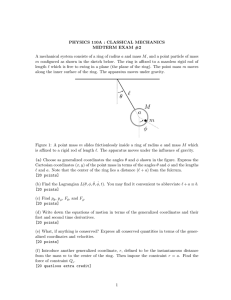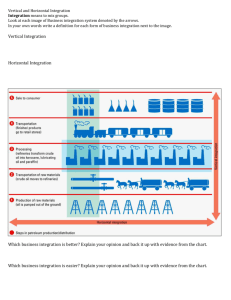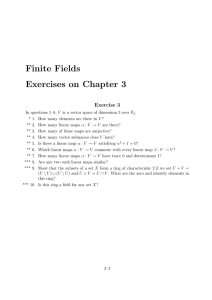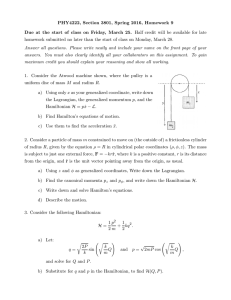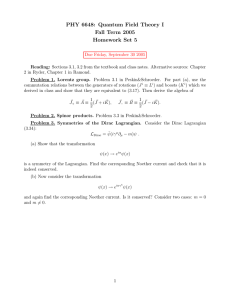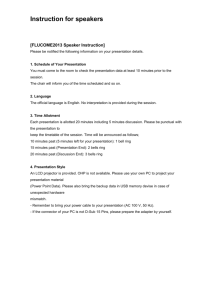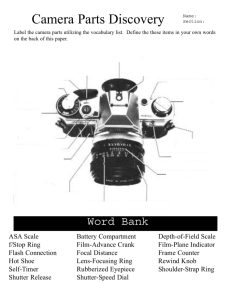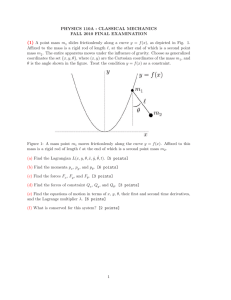PHYSICS 110A : CLASSICAL MECHANICS MIDTERM EXAM #2
advertisement
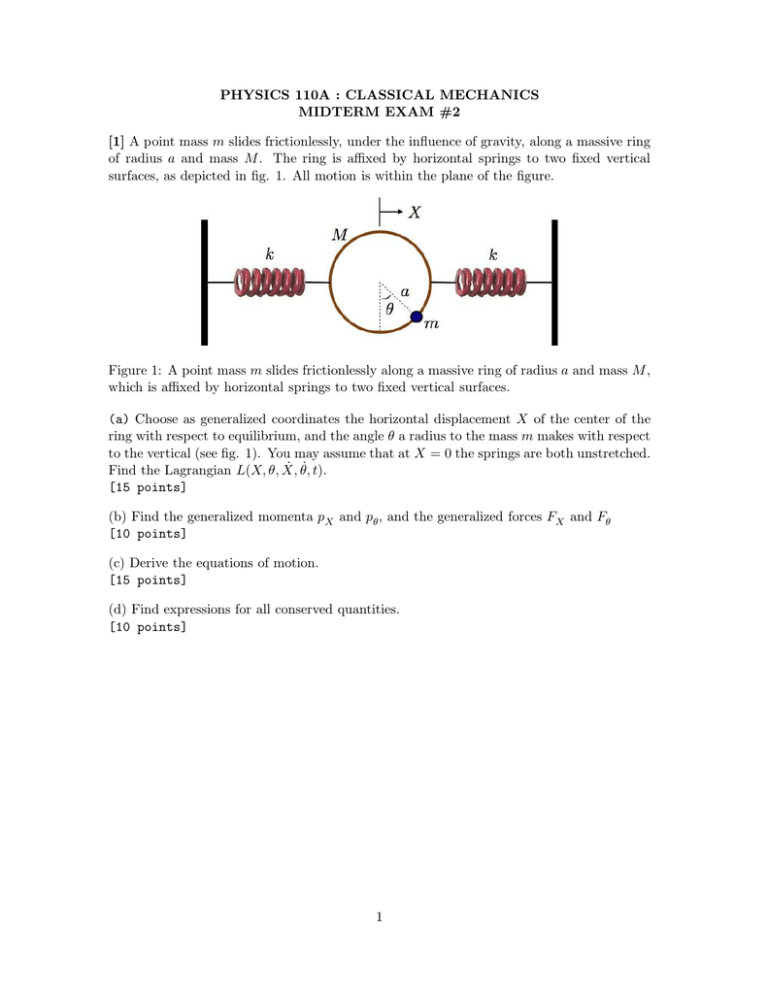
PHYSICS 110A : CLASSICAL MECHANICS MIDTERM EXAM #2 [1] A point mass m slides frictionlessly, under the influence of gravity, along a massive ring of radius a and mass M . The ring is affixed by horizontal springs to two fixed vertical surfaces, as depicted in fig. 1. All motion is within the plane of the figure. Figure 1: A point mass m slides frictionlessly along a massive ring of radius a and mass M , which is affixed by horizontal springs to two fixed vertical surfaces. (a) Choose as generalized coordinates the horizontal displacement X of the center of the ring with respect to equilibrium, and the angle θ a radius to the mass m makes with respect to the vertical (see fig. 1). You may assume that at X = 0 the springs are both unstretched. Find the Lagrangian L(X, θ, Ẋ, θ̇, t). [15 points] (b) Find the generalized momenta pX and pθ , and the generalized forces FX and Fθ [10 points] (c) Derive the equations of motion. [15 points] (d) Find expressions for all conserved quantities. [10 points] 1 [2] A point particle of mass m moves in three dimensions in a helical potential 2πz U (ρ, φ, z) = U0 ρ cos φ − . b We call b the pitch of the helix. (a) Write down the Lagrangian, choosing (ρ, φ, z) as generalized coordinates. [10 points] (b) Find the equations of motion. [20 points] (c) Show that there exists a continuous one-parameter family of coordinate transformations which leaves L invariant. Find the associated conserved quantity, Λ. Is anything else conserved? [20 points] 2
